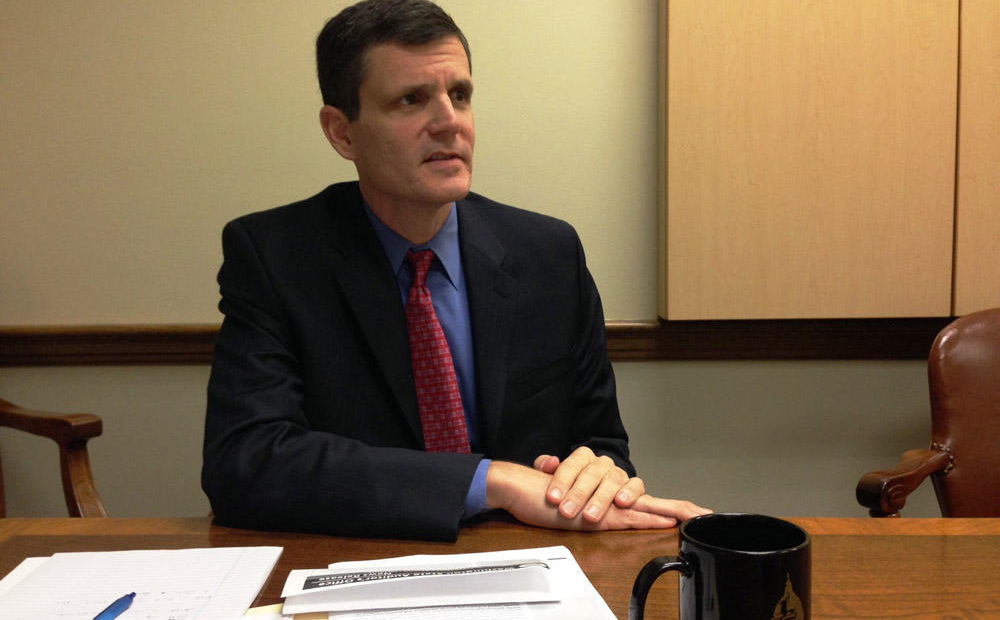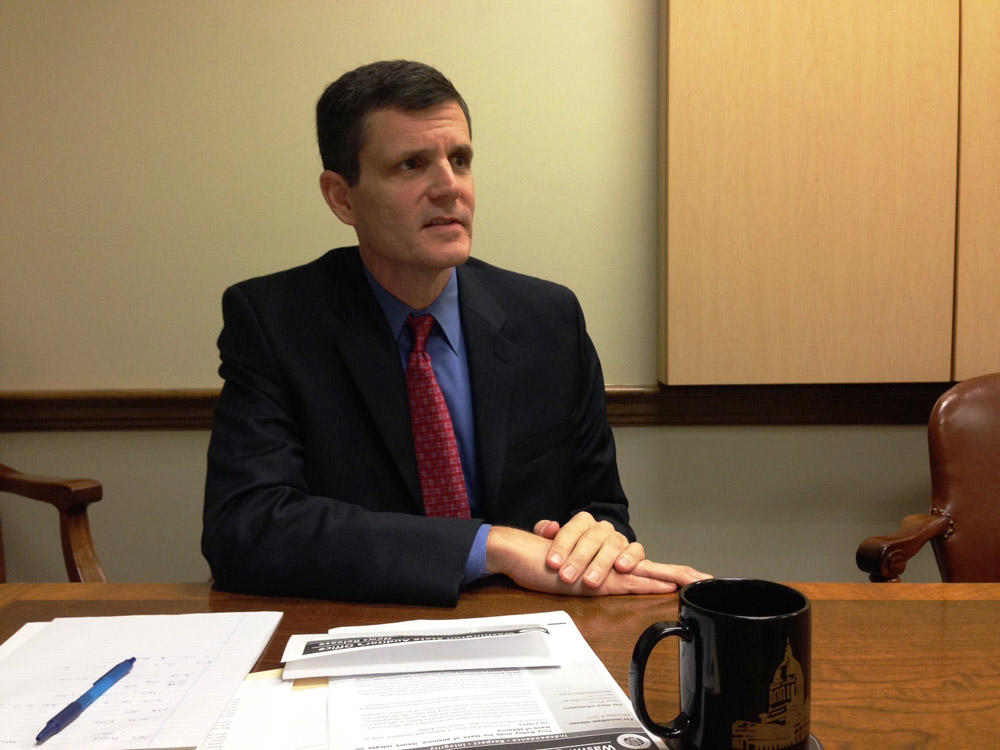
Convicted Former Washington State Auditor Rejected Plea Deals Before Second Trial
Former Washington State Auditor Troy Kelley rejected a pair of plea offers from federal prosecutors that would have allowed him to avoid a second trial and his ultimate conviction on multiple felony counts related to his past business practices.
The plea offers, which have not previously been made public, are contained in recent court filings submitted by Angelo Calfo, Kelley’s attorney, who is seeking a new trial on behalf of his client.
Calfo said on Tuesday that he couldn’t comment on the plea offers because of the pending motion for a retrial.
In the first plea offer, dated May 25, 2016, Assistant U.S. Attorney Todd Greenberg proposed that Kelley plead guilty to two felony counts of filing false tax returns in exchange for all other charges, including the marquee charge of possession of stolen funds, being dropped.
Specifically, the plea would have required Kelley to admit to taking $117,698 in false business deductions over a two year period. In addition, he would have had to forfeit $908,397 that the government said it would have used to refund homeowners.
Prior to becoming auditor, Kelley ran a small real estate services company called the Post Closing Department that contracted with title and escrow companies to track reconveyances. A reconveyance is when a lender clears its interest in a property after a loan is fully paid.
In their 2015 indictment of Kelley, prosecutors alleged he illegally pocketed approximately $1.4 million in reconveyance fees that should have been refunded to homeowners when those fees weren’t needed to complete the reconveyance. Kelley maintained he was entitled to keep the funds.
If Kelley had agreed to the plea deal, federal prosecutors were prepared to recommend a sentence of no more than one year in prison.
The defense, in its court filings, said it never responded to the offer.
Four months later, as the date of the second trial was fast approaching, prosecutors sweetened the proposed plea bargain. In a letter to Kelley’s defense team dated September 15, 2017, Assistant U.S. Attorney Seth Wilkinson offered Kelley the chance to plead guilty to a single “merged” count of making a false declaration in a civil deposition with a recommended sentence of less than one year.
In return, the government would move to dismiss all remaining counts and Kelley would not be required to forfeit any assets or pay restitution.
“This agreement would allow both sides to obtain closure in this matter while avoiding any litigation risk and resource investment that a second trial would involve,” Wilkinson wrote in his letter.
Once again, Kelley’s lawyers said they ignored the offer.
A spokeswoman for the U.S. Attorney’s office in Seattle said Tuesday the office does not comment on plea offers.
Proposed plea deals prior to a trial are not uncommon.
Kelley’s first trial ended with the jury acquitting him of lying to the Internal Revenue Service and deadlocking on all remaining charges.
Following his second trial, the jury found Kelley guilty of possession of stolen funds, filing false tax returns, making false declarations and tax obstruction. He was acquitted on five counts of money laundering.
Last week, U.S. District Judge Ronald Leighton in Tacoma dismissed Kelley’s conviction for tax obstruction based on a change in case law. However, he rejected Kelley’s motion to have his conviction of possession of stolen funds overturned.
Leighton delayed ruling on Kelley’s motion for a new trial pending his review of additional materials the defense has argued could be relevant to the case.
In response to Calfo’s motion for a new trial, the prosecution has argued there was “overwhelming evidence” at trial to show that Kelley was only entitled to keep a small reconveyance tracking fee and not the entire fee paid by escrow customers.
Kelley is scheduled to be sentenced on June 29. The maximum sentence for possession of stolen funds is 10 years in prison.
Copyright 2018 Northwest News Network
Related Stories:

Washington state bill could change how rural communities could work to close a library
Young adult books at the Columbia County Library. Some people have requested to move the YA section into the adult section because of what they call “obscene” material in 100

Washington leaders try to find solutions for wolf depredations and killing of wolves
A gray wolf. (Credit: William Campbell) Listen (Runtime 1:07) Read Some ranchers are saying it is time to find creative ways to deal with wolf attacks on livestock. That’s what

Washington bill aims to reduce ‘fast fashion’ carbon emissions, pollution
Pollution and greenhouse gas emissions from the manufacture of fast fashion are growing just as fast as the industry. A new bill in Washington aims to help lessen the industry’s
















